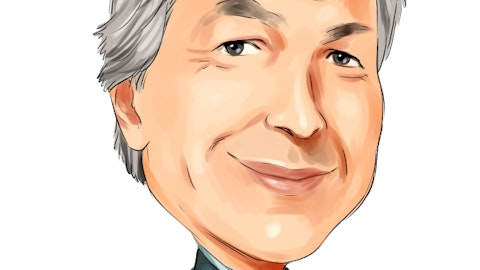The fall of Lehman Brothers five years ago triggered a financial calamity that will never be forgotten by investors. We may have been bloodied initially by the turmoil, but we eventually emerged wiser about investing, in the end. Looking back at that tumultuous time, we asked our top investors to share their most valuable lesson from the financial crisis.
Seth Jayson: I learned, or rather, relearned, that things are only obvious in hindsight. Unfortunately, most investors cannot cope with this basic truth and will forever misunderstand recent market history and their place in it.
It’s far too easy to look back at the credit spigot, the outright scam that masqueraded as a credit default industry, and the eventual unraveling and say, “I told you so!” Some smart observers had been telling us so for years before everything fell apart (and didn’t make a nickel investing because their timing was wrong).

Morgan Housel: You asked for one, but I’m going to give you five. I think they’re all important:
Cash gives you options. Debt takes options away. This is a simple way to think about the two, but it really captures what they do to your finances.
It’s much easier to say “I’ll be greedy when others are fearful” than it is to actually do it. Almost everyone I know — including myself — should have bought more aggressively when stocks crashed.
“Risk” in the stock market means different things to different people. The 2008-2009 crash was the biggest gift of opportunity investors may ever receive.
Go back to early 2007. The majority of experts thought we’d avoid a recession. A few on the fringe foresaw trouble. An even smaller amount thought it would be bad. No one got the details right. Amazingly, this performance did nothing to dent the profession of forecasters. This should be remembered when listening to pundits.
We went through the worst economic crisis in 80 years and it took just four years for stocks to return to all-time highs. This, too, should be remembered when the next big recession hits.
David Gardner (as told to Chelsea Gustafson): First, an introduction for those unfamiliar: Motley Fool CAPS is our community stock-picking intelligence database. For more than seven years now, every 15 minutes our community’s pick performance — millions of picks — are ranked and updated. Fully transparent, free, and accessible, CAPS thus provides a fishbowl view of the stock-picking activity of our community, based on a meritocratic system where what you do counts more than what you say. CAPS has been helping investors pick winners and avoid losers since its invention by David Gardner and our team in 2006.
On March 17, 2008, Lehman Brothers stock was trading at $30.50. Most of the smart money in the Motley Fool CAPS system had Lehman going nowhere but down. The Fool community stood in stark contrast to the uniformity of Wall Street players with their bullishness (green thumbs)… and red scores. That day, David decided to write this article, and side with the CAPS community. You may have heard that six months later, Lehman went bankrupt.
Catching up with David recently, he cited this article as one of his top 10 all-time favorite pieces of his own work. To think that Wall Street and the big money was buying Lehman, to think that The Motley Fool community intelligence was diametrically opposed, and to remember that literally within six months of his article Lehman was bankrupt spins a sad but deeply interesting yarn.
On the five-year anniversary of Lehman’s bankruptcy David vividly remembers his lesson learned: The spirit of CAPS, the spirit of The Motley Fool, is investors helping investors beat the market.
LouAnn Lofton: The most important investing lesson I learned from the financial crisis? That’s easy — controlling your emotions really is key to being an exceptional investor. Sure, I’d heard Buffett’s oft-quoted quip about temperament mattering more than intellect (and I was even preparing to write a book on that very topic), but man, nothing brings the abstract into glaring, everyday reality like seeing your portfolio sliced in half.
I’d been investing for a decade prior to the fall of 2008. I’d been through the 2000 crash, through various market ups and downs, and I had a pretty good handle on my emotions. I think long-term, I don’t pay attention to short-term blips, and I’m focused on owning shares of companies I believe in, versus trading tickers.
Nonetheless, the fall of 2008 and spring of 2009 presented me an opportunity to practice patience, calm, and long-term thinking like never before. It also served up chances to buy cheaper shares of companies I already owned (like Chipotle Mexican Grill, Inc. (NYSE:CMG) and Apple Inc. (NASDAQ:AAPL)). I didn’t panic, I didn’t sell, and I actually bought more, but it was the scariest time as an investor I’d ever faced. Having made it through all that with my emotions — and portfolio — intact, I’m hopeful that I’ll weather the next investing storm even better.





